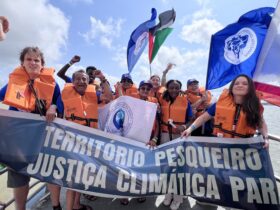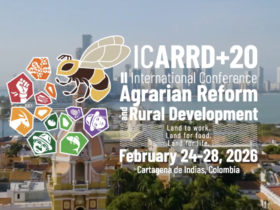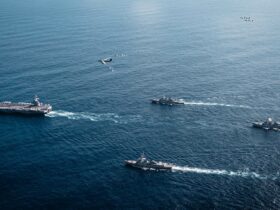Civil Society Statement made by: Cairo Roberto Laguna on behalf of the World Forum of Fish Harvesters (WFF), the World Forum of Fisher People (WFFP), the International Collective in Support of Fishworkers (ICSF) and the Internal Planning Committee for Food Sovereignty (IPC).
Made at: the 30th Session of the Committee on Fisheries on the Food and Agriculture Organization of the United Nations. 11 July 2012.
Agenda Item 10 (a): Update on the development of International Guidelines for Securing Sustainable Small-scale Fisheries
Chairperson, Governmental delegations and Members of COFI
Fraternal Greetings from the millions of men and women artisanal fishworkers, who we are proud to represent.
My name is Cairo Roberto Laguna. I am an artisanal fisheries producer and vessel owner from Nicaragua, where I am currently the President of the Nicaraguan Artisanal Fishing Federation (FENICPESCA), Secretary of the Steering Committee of the Central American Confederation of Artisanal Fishermen (CONFEPESCA) and Latin American Representative of the World Forum of Fish Harvesters and Fishworkers (WFF).
Here I speak on behalf of the World Forum of Fish Harvesters (WFF), the World Forum of Fisher People (WFFP), the International Collective in Support of Fishworkers and the Internal Planning Committee for Food Sovereignty (IPC).
The development of the guidelines on small-scale fisheries presents us with a unique opportunity: the opportunity to enhance the contribution of our sector to food security and poverty eradication, to socio-cultural diversity, to decent employment and livelihoods, to local and national economies, and to the conservation and sustainable use of fisheries resources, both inland and marine.
We, organizations that represent and support small-scale fisheries and fishing communities, have, therefore, welcomed the guidelines. We have also committed to engaging with the process of developing them. We have set up a co-ordination group comprising representatives from the WFF, WFFP, IPC, and ICSF for the purpose of engaging with this process.
Our effort is to ensure that the voices of small-scale, artisanal and subsistence fishing communities and indigenous peoples, their perspectives and proposals, are reflected in the guidelines. During the last nine months we have organized 14 national workshops as well as a regional workshop in Africa which had representation from 16 countries. Over 1600 representatives were part of these consultations. We have synthesized the workshop reports and a draft report has been made available to COFI. This process is continuing and proposals and perspectives from further consultations organized will be integrated into our report.
We urge the Committee on Fisheries to respect and recognize our commitment and facilitate our further meaningful participation with this process. We urge you to ensure that our voices are well represented at the inter-governmental technical negotiations on these guidelines to be held in 2013. In particular we request that:
- A specified number of civil society representatives, nominated by us, be enabled to make interventions during plenary discussions;
- Our representatives be allowed to participate in breakout sessions/ working groups of the technical consultation;
- Our representatives be allowed to submit and present written contributions and proposals.
Many such steps to enhance civil society participation have been taken within earlier FAO processes, as during the development of the 1995 Code of Conduct for Responsible Fisheries and the Voluntary Guidelines to support the Progressive Realization of the Right to Adequate Food in the Context of National Food Security.
The Committee on World Food Security-led negotiations also benefited greatly from the active participation of civil society in the development of the Voluntary Guidelines on the Responsible Governance of Tenure of Land, Fisheries and Forests in the Context of National Food Security.
Facilitating our active participation will ensure that the Guidelines adopted represent a shared vision, and that they are owned widely, particularly by small-scale fishing communities themselves. This is essential if the guidelines are to be implemented effectively.
Finally we would like to request COFI to commit financial resources to ensure the participation of our representatives in the negotiations process.
Thank you for your attention




Leave a Reply